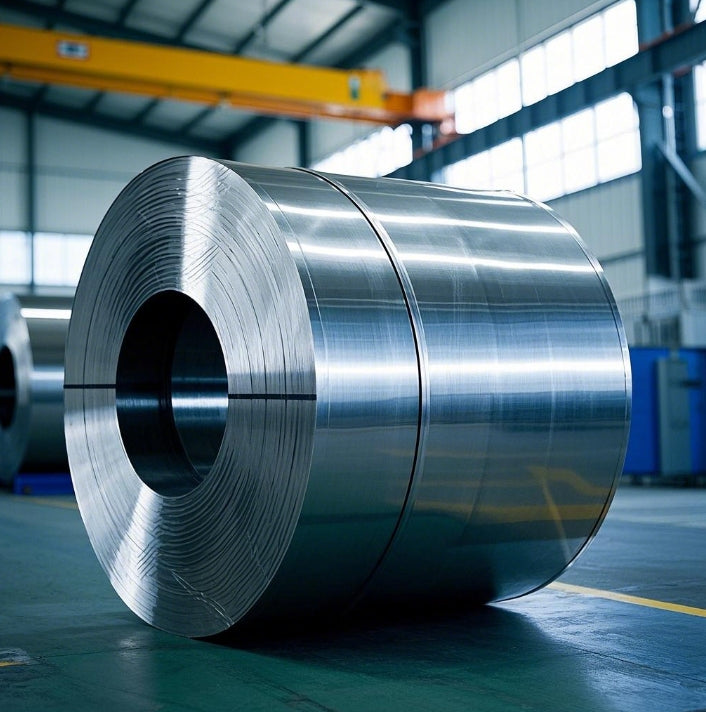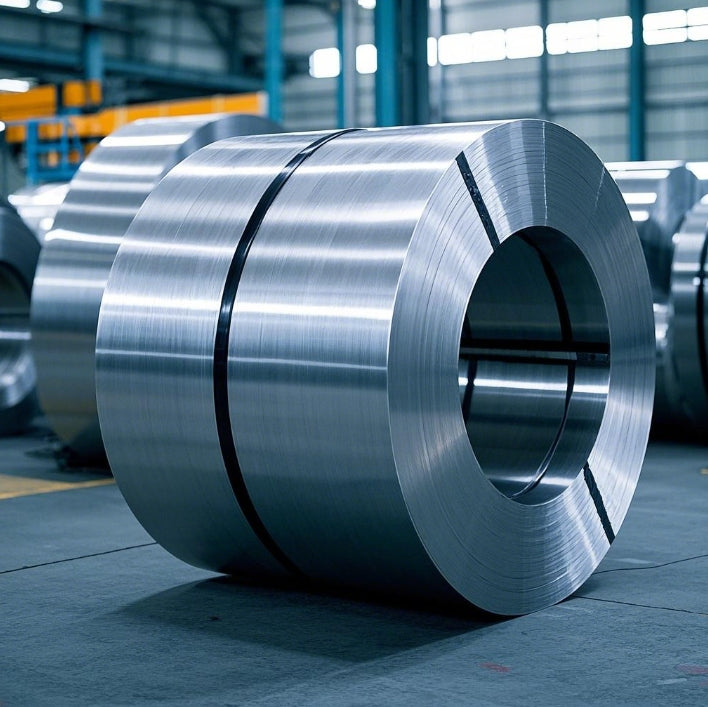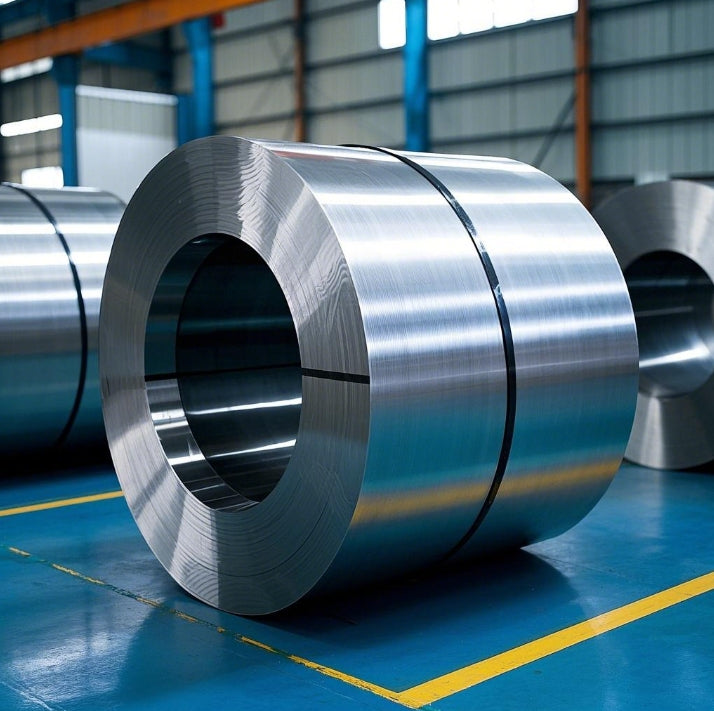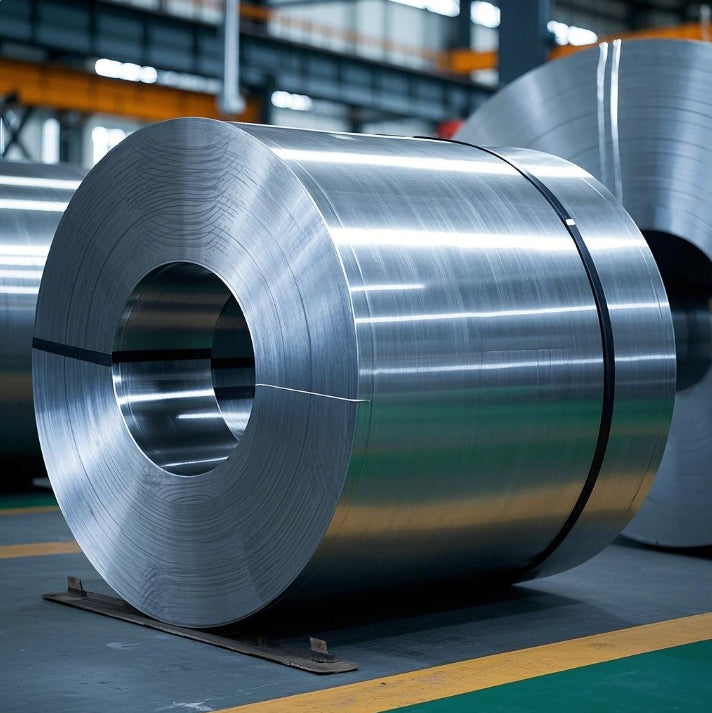StockSteel
High-Tensile Stainless Steel Coil | Customized for Industrial Use
High-Tensile Stainless Steel Coil | Customized for Industrial Use
Couldn't load pickup availability
High-Tensile Stainless Steel Coil | Customized for Industrial Use
Product Overview
Our stainless steel coil solutions are engineered for demanding industrial environments, combining exceptional tensile strength, corrosion resistance, and versatility. Designed for applications in automotive, construction, aerospace, and machinery manufacturing, these coils are available in grades like 304, 316L, and SUS430. The stainless steel coil tubing variant is ideal for hydraulic systems and heat exchangers, while stainless steel coil nails provide unmatched durability for structural fastening.
Technical Specifications
Key Attributes & Dimensions
| Attribute | Details |
|---|---|
| Material Grades | 304, 304L, 316L, SUS430 (ASTM A240, JIS G4304) |
| Thickness | 0.3mm – 12mm (cold-rolled) / 1.0mm – 20mm (hot-rolled) |
| Width | 600mm – 2000mm (standard) / Custom widths available |
| Hardness | HV 150–250 (304L), HV 180–300 (316L) |
| Surface Finish | 2B, BA, No.4, HL, or customized finishes (e.g., embossed) |
| Coil Weight | 1–20 tons (standard) / Precision-cut lengths available |
| Packaging | Waterproof paper, steel straps, PVC sleeves, wooden pallets |
Performance Characteristics
1. Tensile & Bend Strength
- Tensile Strength:
- 304L: 485–620 MPa | 316L: 520–690 MPa | SUS430: 450–600 MPa.
- These values exceed standard mild steel by 30–50%, making our coils suitable for high-stress components like automotive chassis and crane booms.
- Bend Strength:
- Cold-rolled stainless steel coil retains ductility even at subzero temperatures (-50°C), while hot-rolled variants withstand repeated thermal cycling without cracking.
2. Weight Calculation
Use the formula:
Weight (kg) = Width (mm) × Thickness (mm) × Length (m) × Density (7.93 g/cm³)
Example: For a 1000mm-wide, 2mm-thick, 50m-long coil:
1000 × 2 × 50 × 7.93 = 793 kg
3. Rust Prevention
While stainless steel coil inherently resists oxidation, prolonged exposure to chlorides (e.g., coastal environments) or mechanical abrasion can cause localized pitting. Our coils undergo passivation treatments to enhance chromium oxide layer formation, reducing corrosion risks by 60%.
4. Identification & Marking
- Laser-etched labels include: Grade (e.g., 304L), Batch Number, Thickness/Width, and Compliance Standard (ASTM/JIS).
- Color-coded edges: Green for 304L, Red for 316L, Blue for SUS430.
Manufacturing Process
| Stage | Description |
|---|---|
| Cold Rolling | Precision reduction of thickness (±0.02mm tolerance) for uniform grain structure. |
| Annealing | Heat treatment at 1010–1120°C to restore corrosion resistance and ductility. |
| Pickling | Acid bath removal of oxide layers for a clean, smooth surface. |
| Surface Finishing | Custom textures (e.g., HL for architectural use) via grinding or brushing. |
| Slitting | High-speed cutting to customer-specified widths (e.g., for stainless steel coil nails). |
Applications
- Automotive: Exhaust systems, structural reinforcements, and stainless steel coil tubing for fuel lines.
- Construction: Roofing, cladding, and fasteners (stainless steel coil nails) for coastal buildings.
- Aerospace: Hydraulic tubing and heat-resistant engine components.
- Medical: Sanitary equipment and surgical tool manufacturing.
Why Choose Our Stainless Steel Coils?
- 25+ Years of Expertise: As a leader in metallurgical innovation, we serve Fortune 500 companies like Toyota and Siemens.
- Tailored Solutions: Customize thickness, width, finish, and packaging for niche applications (e.g., stainless steel coil nails with anti-galling coatings).
- Global Certifications: ISO 9001, ASME, and RoHS compliance ensures material traceability and environmental safety.
- Fast Logistics: 7–10 days delivery for standard orders; 15 days for custom slitting/annealing.
- Technical Support: Free consultation on grade selection, fabrication techniques, and corrosion management.







